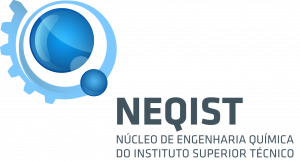
Programme overview
Chemical Engineering develops new solutions for technical and scientific problems in the intersection of Chemistry and Engineering. The role of a chemical engineer is to investigate, design, conceive and operate systems for transforming chemical materials into final products, through chemical and physical processes, framed by economic, social, ethical and environmental constraints.
Programme Structure
2nd cycle in Chemical Engineering has a duration of 4 semesters (2 years), equivalent to 120 ECTS. The structure is depicted below.
-
1st year (ECTS)
-
42
-
18
-
-
2nd year (ECTS)
-
12
-
6
-
12
-
30
-
The curricula of the 1st and 2nd Cycle were reformed in the 2021/2022 academic year, following Decree-Law 65/2018 and the implementation of a new teaching model and pedagogical practices. The MSc programme in Chemical Engineering derives from the former Integrated Master in Chemical Engineering.
-
Core Structure (54 ECTS)
Técnico MSc in Chemical Engineering (Major) deepens the knowledge acquired in the 1st Cycle, introducing themes in areas such as:
- Reaction Engineering
- Industrial processes for the production and separation of chemical products
- Production, Operations and Quality Management
- Systems and Process Control
-
Free options (24 ECTS)
Part of the curriculum is of fully free choice, i.e., students may choose subjects not only in Chemical Engineering, but also in any other scientific field offered by Técnico.
This component offers the possibility to take a Minor – a number of multidisciplinary courses – which is equivalent to 18 ECTS credits. The offer cuts across all programmes offered by Técnico.
Extra-curricular activities may also be credited, to a maximum of 6 ECTS credit points.
-
Project (12 ECTS)
The project will integrate the knowledge acquired in this Master Programme, working in groups on a chemical product or a challenge in the chemical industry.
-
Dissertation (30 ECTS)
The dissertation is the final assignment of the study cycle, which allows students to focus and specialise on a specific subject that may take any of these formats:
- Scientific thesis
- Internship at a company
- Capstone project
Target Audience
The Master Programme in Chemical Engineering is aimed at graduates in Engineering, namely those with curricular courses in Chemistry, Materials, Biochemistry, Environment, Industrial Management and related areas.
The programme is taught in Portuguese however may there be international or mobility students enrolled, the curricular units will be taught in English.
Career Opportunities
Técnico MSc graduates in Chemical Engineering can work in areas as diverse as the Chemical and Petrochemical Industry, Pharmaceutical and Agrifood Industry, Environmental Industry or Textile Industry and may develop activities such as:
- Design, research, development, operation and optimization of processes;
- Development of chemical-based materials, products and devices;
- Idealization, development and implementation of chemical analysis;
- Scientific research and development (R&D);
- Quality control;
- Marketing of products, equipment and processes;
- Consulting and leadership, leadership and management functions;
- Professional training and education.
Facts & Figures
employed MSc graduates
employability in the area of study
internationalization
Source: Técnico Employability Observatory | 2016/17 academic year data.
Entry requirements
To apply for a 2nd Cycle at Técnico you should:
- hold a 1st cycle degree in Science and Technology (except in the case of the 2nd cycle in Architecture, which requires a 1st cycle degree in Architecture);
- hold an academic, scientific or professional curriculum that certifies their ability to do the MSc programme which they apply for.
Candidates are selected according to these criteria:
- affinity between the degree they hold and the programme they apply for;
- type of degree they hold;
- academic success in the programme they attended.
Note: if requested, we may appreciate the academic, scientific or professional curriculum and the candidate’s performance during the interview.
Students' Organisations

Técnico students autonomously and proactively stimulate projects that complement their academic background. For example, the Students’ Organisations provide them with skills and added value making them more competitive in the labour market.
The Chemical Engineering Group (NEQIST) is the main student organisation in this field, and promotes several activities:
- Study visits and workshops
- Organisation of Chemical Engineering Conferences
- Collaboration in Open Chemical Engineering Laboratories
- Study Materials Repository
- Connection to alumni (former students of the course)
- Técnico Summer Internships
- Leisure, sports and recreational activities
- Volunteer activities

